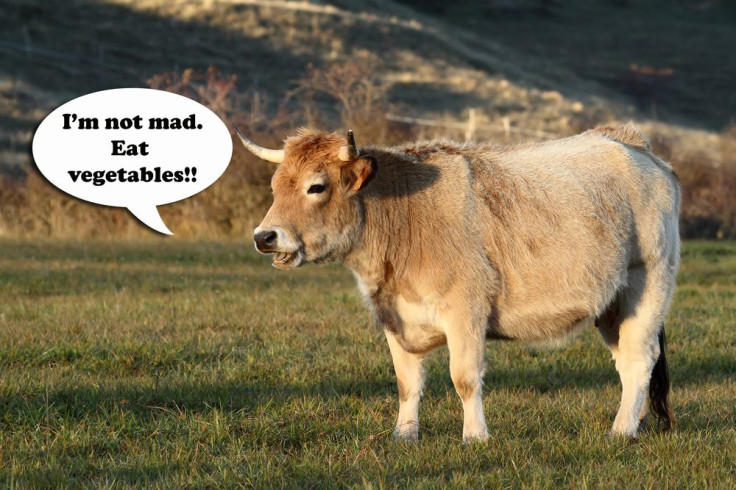People Who Eat Meat Cause More Damage To The Environment Than Vegetarians: Study

Due to the use of land, food, energy, and water, some environmental experts suggest that people adhering to an all-vegetarian diet have a smaller carbon footprint as opposed to meat-eaters. Researchers from the Oxford Martin Programme on the Future of Food and the British Heart Foundation Centre have revealed that people who eat meat are significantly worse for the environment compared to vegetarians.
"Dietary greenhouse gas emissions in self-selected meat-eaters are approximately twice as high as those in vegans,” authors of the study said in a statement. “It is likely that reductions in meat consumption would lead to reductions in dietary greenhouse gas emissions."
Lead researcher Peter Scarborough and his colleagues used data from EPIC-Oxford study of 65,000 men and women between the ages of 20 and 79. Participants whose diets were assessed using a food frequency questionnaire included 2,041 vegans, 15,751 vegetarians, 8,123 fish-eaters, and 29,589 meat-eaters. A dataset of greenhouse gas emissions for 94 food sources in the UK were used to estimate the greenhouse gas emissions of each diet. Findings revealed that greenhouse gas emissions produced by the diet of meat-eaters were 50 percent higher than vegetarian diets and twice as high as vegan diets.
According to the Vegetarian Society, around 20 percent of all greenhouse gas emissions from human-related activities were tied to livestock farming. Livestock farming is also responsible for approximately 65 percent of nitrous oxide that is produced by human activity. Nitrous oxide is estimated to be 300 times more damaging to the climate than carbon dioxide. Livestock including cows and sheep are charged with 37 percent of total human-related methane production. A single cow can produce up to 500 liters of methane per day via their manure.
Around 70 percent of Amazon rainforests have been destroyed in Latin America to make room for land capable of raising livestock. To produce a little over 2 pounds of either beef or pork, cattle require up to 15 and a half pounds of grains while pigs require 8.8 pounds of grains. The average diet of a person who eats meat requires two and a half times the amount of land as a person adhering to a vegetarian diet and five times the amount of a vegan diet.
Source: Appleby P, Mizdrak A, Briggs A, Scarborough P. Dietary greenhouse gas emissions of meat-eaters, fish-eaters, vegetarians and vegans in the UK. Climate Change. 2014.



























